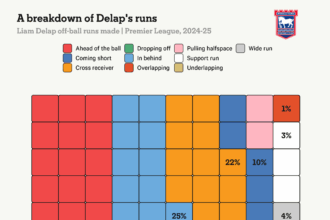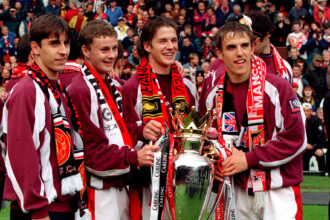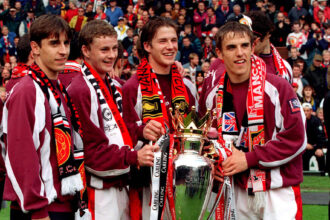By now, most people will have seen the video.
They will have heard Harry Redknapp describe Thomas Tuchel as a “German spy” and then, in front of an audience in London last week, say Tuchel “has been sent over to f*** us up”.
“I’m telling you,” Redknapp continues, “he’s like Lord Haw-Haw in the war — ‘We have your best soldiers captured’ and all that.”
Advertisement
It was an appalling attempt at a joke.
Lord Haw-Haw was better known as William Joyce, a virulent antisemite who was once deputy leader of the British Union of Fascists. Joyce spent the Second World War broadcasting Nazi propaganda back to Great Britain from Germany before being captured, tried for treason and hanged in 1946.
In the video, first published by The Guardian, Redknapp is also seen raising his left arm, prompting a burst of laughter from the audience. When contacted by The Athletic, Redknapp denied that this was intended to mimic a Nazi salute.
The defence is on its way — the “bore off and stop ruining the fun” response.
And it probably is too crass to be offensive. It’s too ignorant to be taken seriously. It’s not worthy of anything other than weary disdain, or of provoking more than toe-curling embarrassment.
The video had yet to surface in the German media at time of writing. When it inevitably does, what Redknapp said and appears to do will make England look very, very small. As will the guffawing reaction heard in the background which describes how, for some, the German bogeyman remains alive, hilarious and a proxy for a war that ended 80 years ago.
Former West Ham, Portsmouth and Tottenham manager Harry Redknapp (Stu Forster/Getty Images)
It’s been 50 years since Episode Six of sitcom Fawlty Towers first aired, in October 1975.
In it, for those who do not know, shambolic Torquay hotelier Basil Fawlty welcomes a group of German guests. He begins the episode determined not to “mention the war” but by the end of it has goose-stepped across his hotel’s dining room while they are eating in front of him.
In Britain, it remains a beloved episode within a cherished series. The joke is on Basil, though. The audience is laughing at him for his inability to disassociate with a war which, by then, had already been over for three decades.
By 1996, 51 years had passed since the war ended and yet, on the morning of England’s Euro Championship semi-final against Germany, the Daily Mirror — then edited by Piers Morgan — mocked up pictures of England players Stuart Pearce and Paul Gascoigne to make them look like they were wearing military helmets, and printed them on its front page alongside the headline: “Achtung! Surrender! For you Fritz, ze Euro 96 Championship is over!”
Advertisement
To the side, in an editorial sidebar, The Mirror then “declared football war” on Germany, writing, with a cringeworthy reference to Neville Chamberlain’s address to the British public in September 1939: “Last night the Daily Mirror’s ambassador in Berlin handed the German government a final note stating that, unless we heard from them by 11 o’clock, a state of soccer war would exist between us.”
A few years later, Morgan counted that headline among his greatest regrets. Only, during the 2010 World Cup when England met Germany in the last 16, to change his tune again. He also admitted he had wanted to hire a vintage Spitfire aeroplane from the Second World War, to drop copies of his front page on a Germany training session, and to send a tank to “invade” the offices of Bild, the German tabloid.
It could have been worse, but that front page still characterised the mood, describing how easily the country found that particular gear.
It became an issue for the British Foreign Office and was discussed in parliament. England’s head coach at the time, the late Terry Venables, condemned the behaviour and the Press Complaints Commission received several hundred complaints.
Hundreds, though, not thousands, and those who remember those weeks will recall that the perception was of a tabloid that had gone too far, rather than having been wildly offensive.
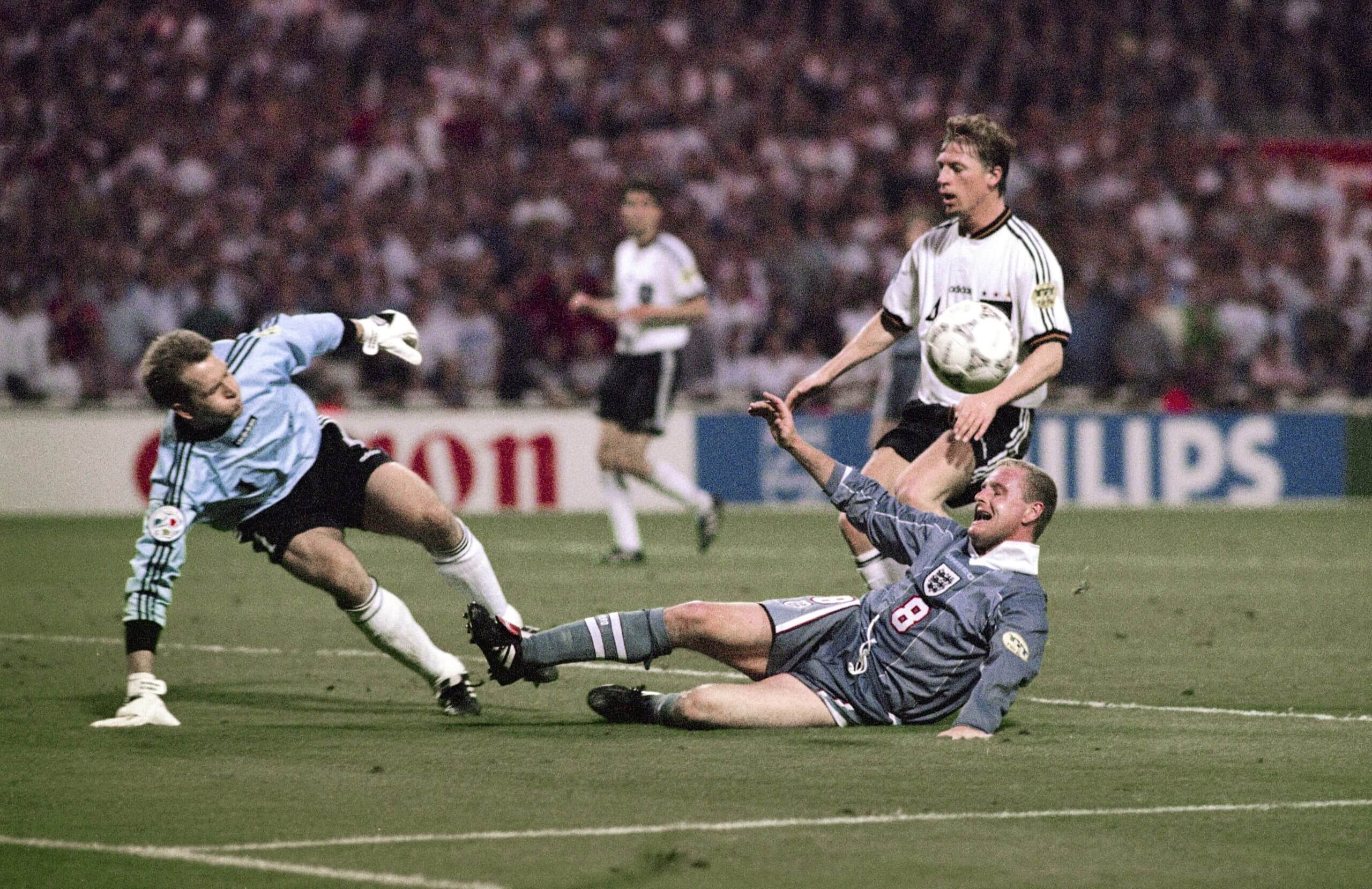
Gascoigne fails to convert a cross against Germany at Euro 96 (Ross Kinnaird/Allsport/Hulton Archive/Getty Images)
In 2025, Thomas Tuchel has not walked into that same atmosphere.
Most likely, a headline like that would never run today — at least not in the same overt way. And yet the reaction to Tuchel’s appointment as England head coach has carried mild shades of Fawlty’s unease and that same “Oooh, a German!” sub-banter that must have made that Mirror front page seem like a clever idea.
Amazingly, parts of England are still there. Still in that place. Still thinking that it’s appropriate to discuss a football manager in such terms. Still believing, correctly as it turns out, that references to Lord Haw-Haw, funny German accents and ambiguous arm gestures can light up certain rooms.
Advertisement
It’s so flippant. And country to country, it makes for an extraordinary contrast.
I do not know much about Germany. I have lived here for four years, in Hamburg, but that is not nearly enough time to understand a country in detail. Particularly not one with so many regional differences, state by state, and where the past is so complex.
But that past is more active here; it plays more of a role in the present.
In a literal way, because walk around many German cities and among the monuments, plaques and statues, you will find Stolpersteine — “stumbling stones” — that are embedded within the pavements and engraved with the names of the Nazis’ victims.
The rise of the far-right Alternative für Deutschland party suggests a weakening of the country’s “Never again” stand against fascism. The causes and implications of that go beyond the scope of this article and are still not properly understood, but Germany has significant societal and economic problems and denying that would be disingenuous.
What is still true, though, is that Germans grow up learning about the Nazi era in a way that forces children, from quite a young age, to confront that past.
Most people educated in England will remember school trips to Roman villas and nature sanctuaries. Almost everybody, regardless of where they come from, will know what it is to be herded onto a bus with an apple, a bag of crisps and a soggy sandwich, and then shown around a quarry or castle. Germans no doubt do that, too, but their field trips pass through the darkness.
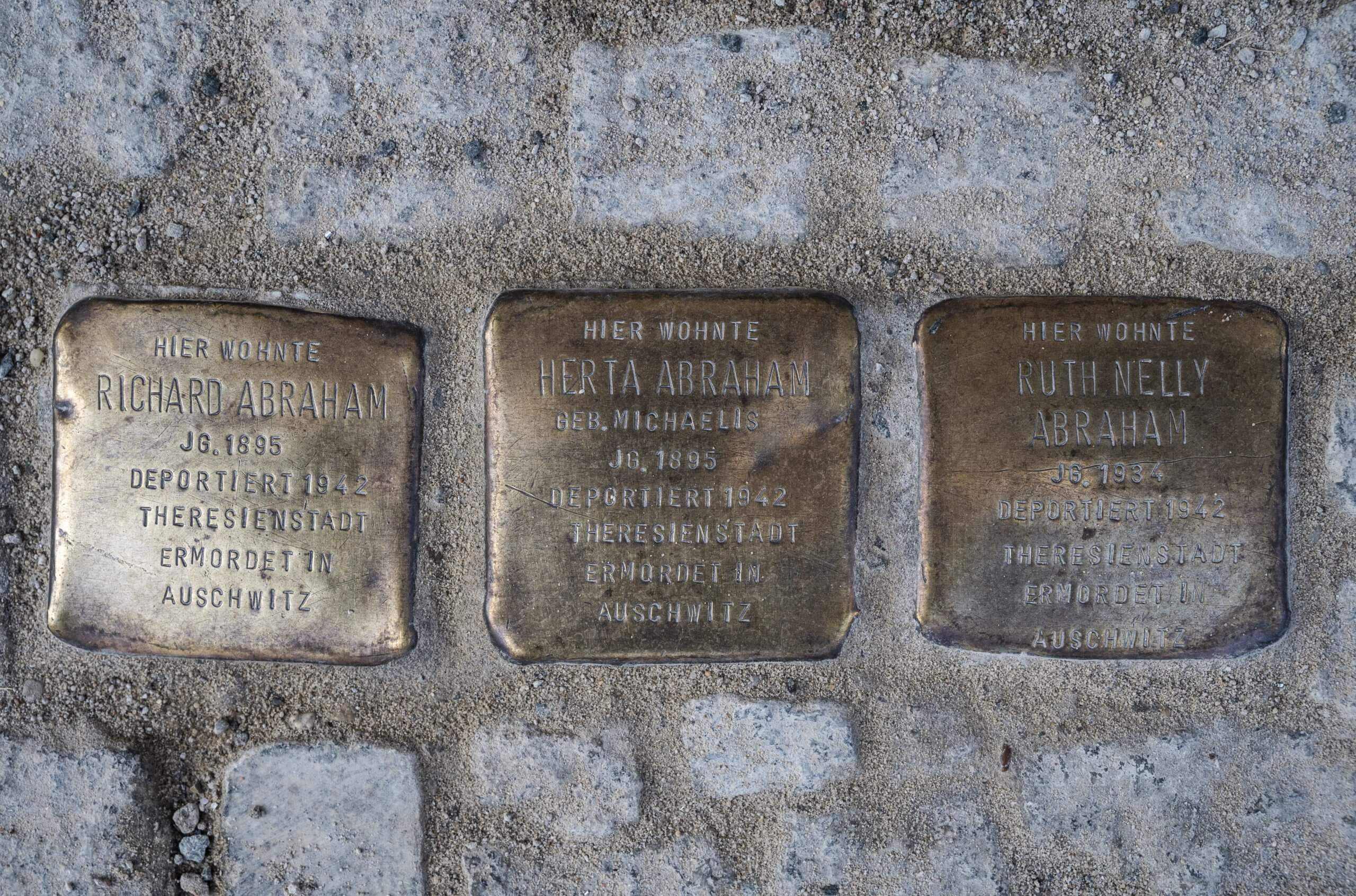
Stolpersteine in Berlin (John MacDougall/AFP via Getty Images)
My wife, who was born in Hamburg, remembers being taken to the former Neuengamme concentration camp with her school as a teenager. She saw the gas chambers, the crematorium and the piles of shoes and, like millions of other Germans, came face-to-face with those horrors at a young age.
There is a word for this. Vergangenheitsbewältigung. It means “the struggle of overcoming the past”.
Advertisement
Many institutions and companies in Germany have inextricable links to the crimes of national socialism and are responsible for causing great suffering, and often far worse. That history cannot be denied. It cannot just be attributed to a different era and forgotten about.
Issues are still being navigated today. Only last month, Bundesliga side St Pauli suspended the in-stadium playing of their club anthem, Das Herz von St Pauli, after it was discovered the author of the song’s lyrics, Josef Ollig, had previously unknown links to the Nazi party.
So, it remains a solemn, unending task which requires vigilance and, in some cases, difficult, disruptive conversations.
It is not funny. There is no comedic currency in any of it. And yet in England, bafflingly, it is something that some can never get beyond.
There are still rooms and contexts in which Germans — and now the head coach of the English national football team — are subject to infantile innuendo. And that really is dispiriting.
(Top photo: Mike Hewitt/Getty Images)






